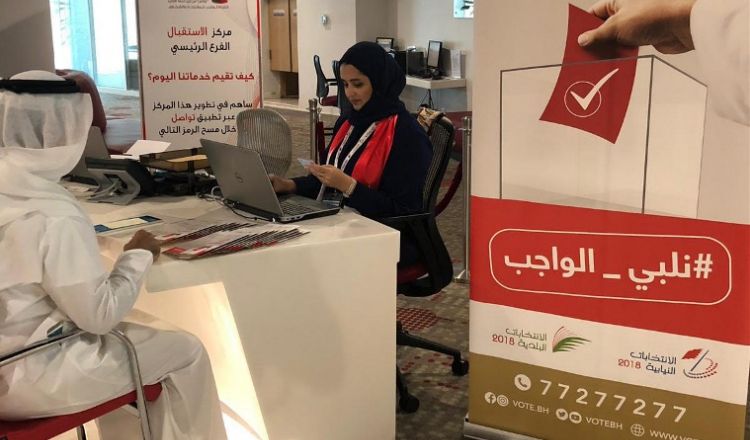Opposition struggle to be heard in Bahrain's state-controlled media
2018-10-15 03:34

Journalist Support Committee: Opposition struggle to be heard in Bahrain's state-controlled media
In Bahrain, the political opposition has been effectively silenced through the government's control over all forms of news media. The Bahraini electorate has no access to fair and accurate reporting from within Bahrain, elections will be held on November 24th, given this context this issue requires action from the Bahraini authorities to ensure that this issue is resolved with immediate effect.
Bahraini authorities had invited a selected group of international media most of them coming from alliance Gulf States and had not opened the opportunity to cover the elections.1 Moreover, the Ministry of Interior had threatened the opposition not to announce or invite the people to boycott the elections.2
The Bahraini government owns all broadcast media outlets. Also, it is the case that the private owners of the four main newspapers have close ties to the government, hence we cannot consider them as independent. The government and its supporters have used the press as a tool of state repression through their concerted smear campaigns against human rights defenders and opposition activists. Self-censorship is encouraged by the vaguely worded 2002 Press Law, which allows the state to imprison journalists for criticizing the king or the Government, or for threatening "national security".3 After making Twitter comments critical of the war in Yemen, Nabeel Rajab was convicted on the basis of article 133 of the Criminal Code for "disseminating false rumours in a time of war". Such legislation ensures the systematic silencing of all opposition voices in Bahrain – whether by way of the traditional media or social media platforms.
In June 2017, Al-Wasat, the only independent newspaper in Bahrain, was banned, this marked a crucial point in the silencing of opposition media. Amnesty International described this ban as "an all-out campaign to end independent reporting." In 2011 the co-founder of the newspaper Abdelkarim al-Fakhrawi died in the custody of Bahrain's National Security Agency, two NSA officers were found responsible for his death.4 The brutality by which the Bahrani authorities have pursued their crackdown on opposition media outlets requires the strongest condemnation from the international community.
The Bahrain Independent Commission of Inquiry (BICI) has made the following recommendations with regard to media incitement issues: (1724a.) "To consider relaxing censorship and allowing the opposition greater access to television broadcasts, radio broadcasts and print media. The continuing failure to provide opposition groups with an adequate voice in the national media risks further polarizing the political and ethnic divide."5 The Bahraini authorities claim that this recommendation has been implemented but the facts and the reality indicate that the resolution has not been forthcoming.
The Journalist Support Committee urges the Bahraini government to honour their commitment to recommendation (1724a.) of the BICI report. We urge the Bahraini government to overturn the bans on all opposition media outlets and to halt the campaign against all forms of independent reporting.
Journalist Support Committee - Switzerland
12 October 2018









